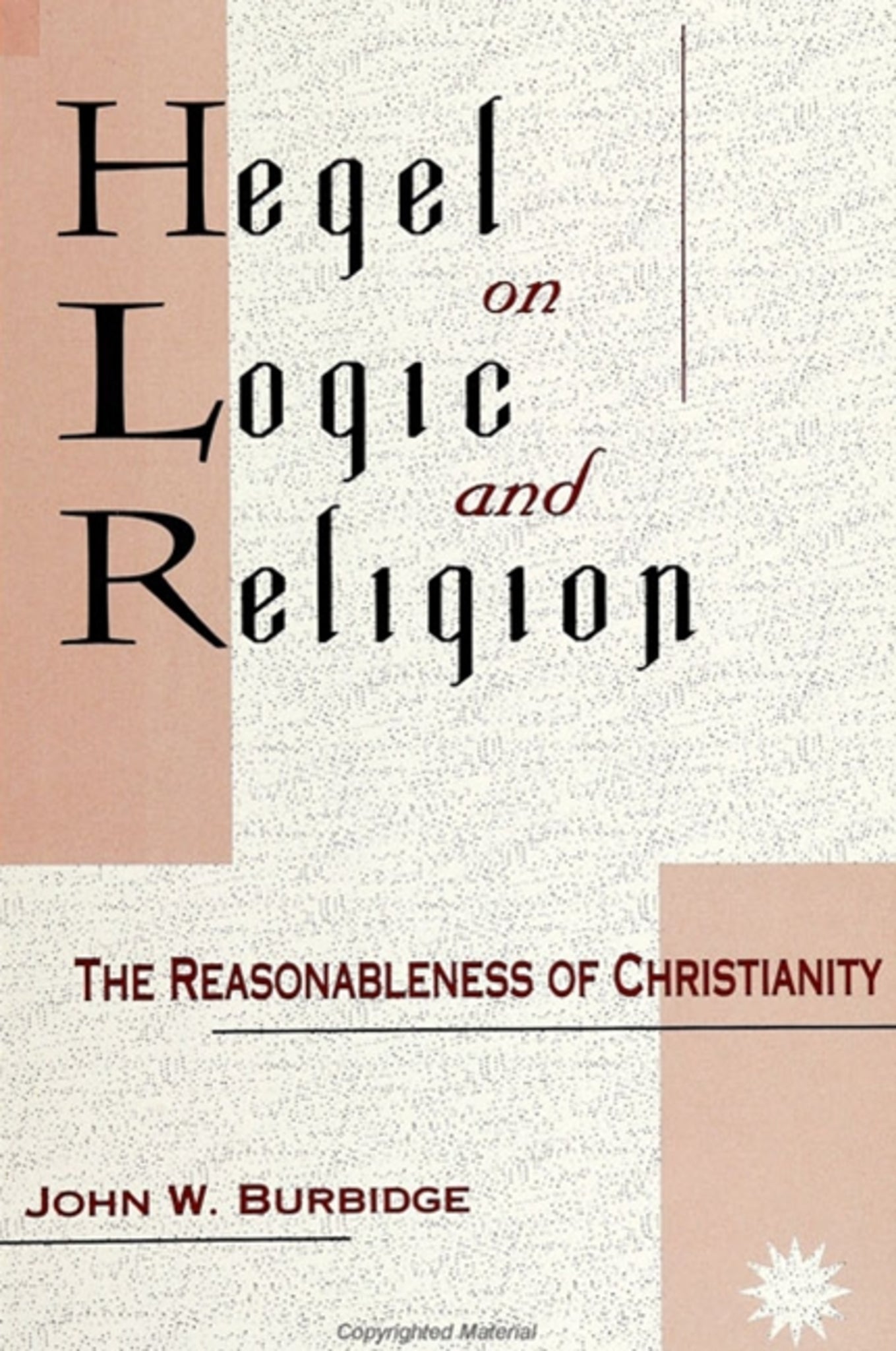We're sorry. An error has occurred
Please cancel or retry.
Hegel on Logic and Religion

Some error occured while loading the Quick View. Please close the Quick View and try reloading the page.
Couldn't load pickup availability
- Format:
-
20 August 1992

A distinction often missed by Hegelian interpreters is that, for Hegel, logic functions differently when it is applied to the contingencies of nature and history. Burbidge shows that Hegel did not claim to have reached the end of history. The future is open.


"John Burbidge is widely respected for his book, On Hegel's Logic. This book continues his interest in logic, with special application to the reasonableness of Christianity. It is well organized into three major areas: logic; logic applied; and Christianity. It will enhance the respect in which he is held as a Hegel scholar." — William Desmond
Acknowledgments
1. Lessing's Ditch: A Preface
LOGIC
2. The First Chapter of Hegel's Larger Logic
3. Transition or Reflection
4. Where is the Place of Understanding?
5. The Necessity of Contingency
LOGIC APPLIED
6. Challenge to Hegel: Contraries and Contradictories in Schelling's Late Philosophy
7. Is Hegel a Rationalist or an Empiricist?
8.Concept and Time in Hegel
9. The Inequity of Equality
CHRISTIANITY
10. 'Unhappy Consciousness' in Hegel: An Analysis of Medieval Catholicism?
11. God, Man, and Death in Hegel's Phenomenology
12. The Syllogisms of Revealed Religion
13. Is Hegel a Christian?
Notes
Index



